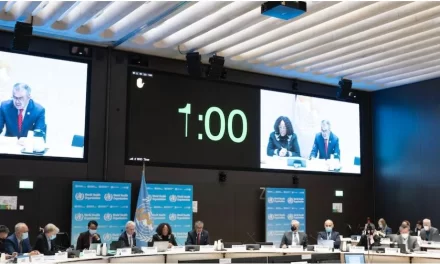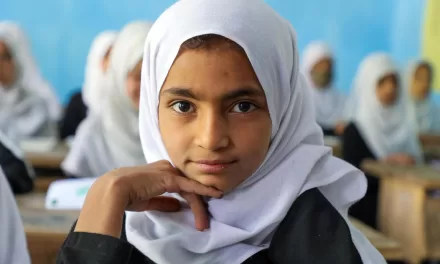Secretary-General António Guterres drew attention on Saturday, the International Day of Older Persons, to the “resilience of the more than one billion older women and men” in a rapidly changing world.
“Yet in the face of these threats, older people have inspired us with their remarkable resilience”.
Unleashing potential
By 2030, 1.4 billion people will be at least 60 years old.
“Our task as societies and as the global community is to address the challenges of longevity – and unleash its potential,” the UN chief continued, urging everyone to “promote the social, economic, and political inclusion of all people at all ages”.
He reminded that this pledge is enshrined in the Sustainable Development Goals (SDGs), adding that lifelong learning, strong social protection, accessible quality long-term healthcare, bridging the digital divide, intergenerational support, dignity and respect “are essential”.
Fountain of knowledge
“Older persons are a tremendous source of knowledge and experience,” said the top UN official, underscoring the need to strive to “ensure their active engagement, full participation, and essential contributions”.
By doing so, we will build more inclusive and age-friendly societies and a more resilient world, he concluded.

Women to the fore
Within the theme for this year – resilience of older persons in a changing world – UN Headquarters in New York is spotlighting older women.
Although they continue to meaningfully contribute to politics, civil society, culture and society at large, their contributions and experiences remain largely invisible and disregarded, limited by gendered disadvantages accumulated throughout the course of life.
That includes the intersection between discrimination based on age and gender, that combines ageism and sexism.
Solution-builders
The International Day of Older Persons serves as a hallmark and reminder of the significant role older women play in overcoming global challenges and contributing solutions, with resilience and fortitude.
Recognizing the vital contributions of older women and promoting the inclusion of their voices, perspectives and needs are critical to creating meaningful policies to enhance a holistic response.
This year, the UN says the day is a call to action and an opportunity to embrace the voices of older women and showcase their resilience and contributions in society, while promoting policy dialogues to enhance the protection of older persons human rights and recognize their contributions to sustainable development.
UN experts chime in
Adding to the call for ensuring that older women are counted and visible, eight UN-appointed independent human rights experts endorsed a statement issued by Claudia Mahler, the independent expert on the enjoyment of all human rights by older persons.
They lauded the roles that older women play in peacebuilding and conflict resolution as carriers of pre-conflict narratives, countering extremist nationalist tendencies, preventing radicalisation and acting as repositories of knowledge about community dynamics.
“Older women themselves are the best advocates for their own needs, concerns and rights,” the UN experts upheld, adding that States should include them in all relevant policy design, implementation and monitoring.
“Older women [must] have access to information on legislation, policies and services that affect their lives in order to be able to make informed decisions and participate meaningfully.”
Making the perspectives of older women visible helps combat harmful and prejudicial gender stereotyping, they spelled out.
Special Rapporteurs and independent experts are appointed by the Geneva-based UN Human Rights Council to examine and report back on a specific human rights theme or a country situation. The positions are honorary and the experts are not paid for their work.











